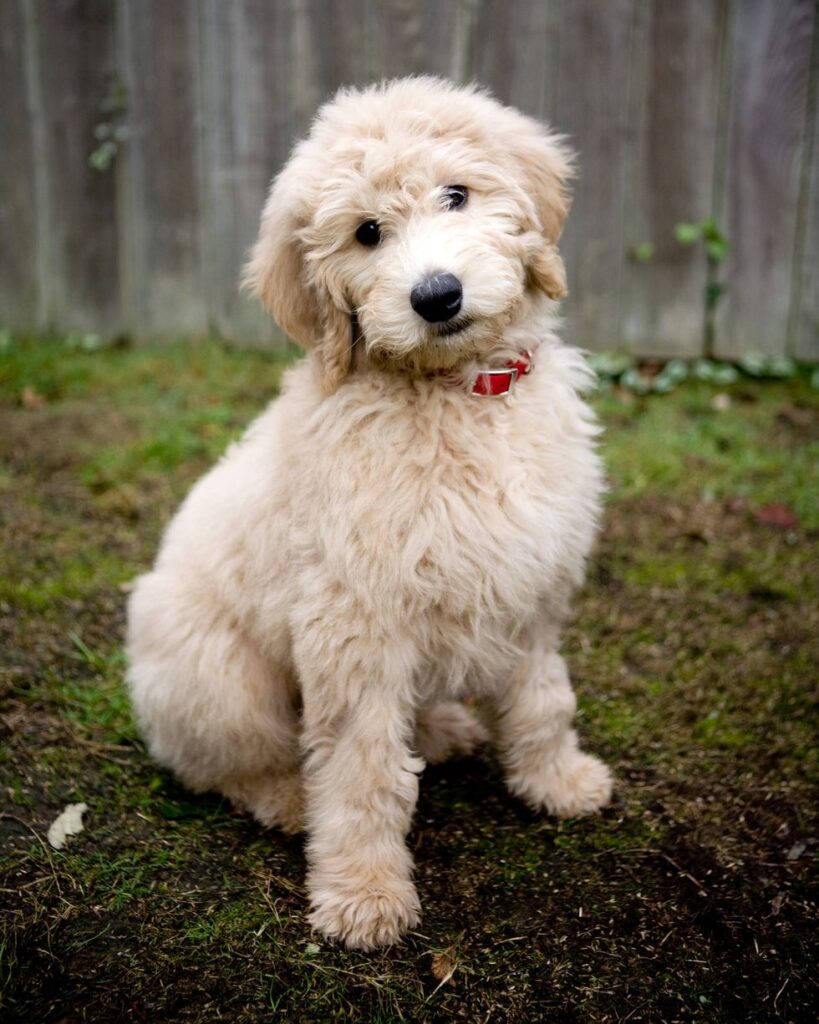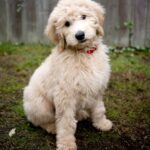Are you an allergic dog owner looking for a furry companion? Do you want to know which dog breeds are hypoallergenic dogs and suitable for your sensitive nose and skin?
In this blog, we will discuss everything about hypoallergenic dogs, including what causes allergies to dogs, how shedding affects allergies, and the role of dander and saliva in triggering allergies. We have also compiled a list of the top 20 hypoallergenic dogs breed, including terriers, Tibetan terriers, Maltese terriers, Shih Tzus, Brussels Griffons, Poodles, Basenjis, Miniature Schnauzers, Havanese dogs, and Kerry Blue Terriers.
We will also cover the American Kennel Club’s stance on hypoallergenic breeds. Additionally, we have included tips on reducing the effects of dog allergies and how to choose the right hypoallergenic breed that fits your lifestyle. Read on to find out the best hypoallergenic breeds for families with children or seniors or those living in apartments or those on a budget.
What are Hypoallergenic Dogs?
Hypoallergenic dogs are breeds that produce fewer allergens and shed less dander, making them a better option for allergic owners. Popular hypoallergenic breeds like Poodles and Bichon Frises typically have hair instead of fur, which reduces shedding. However, no breed is completely hypoallergenic, and reactions can vary.
What Causes Allergies to Dogs?
Allergies to dogs occur due to proteins in their skin cells, saliva, and urine that can prompt an immune system response in certain individuals. Breeds with minimal shedding may produce fewer allergens, potentially making them more suitable for allergic individuals.
Allergens Commonly Found in Dogs
Dog allergies are triggered by proteins present in skin cells, saliva, and urine, leading to sneezing and other allergy symptoms. Dog owners with allergies should groom their furry friends regularly. Pollen, dust, and mold collecting on a dog’s fur can also cause allergies. Dander- which remains airborne for extended periods- sticks to clothes and furniture too! So keep your home clean if you’re an allergy sufferer!
Understanding the Immunological Response to Dog Allergies
Dog allergies occur when certain proteins found in a dog’s skin cells, saliva, and urine cause an overreaction of the immune system. This can lead to uncomfortable symptoms such as sneezing, itching, and congestion for allergy sufferers. Fortunately, there are many hypoallergenic dogs available like the Portuguese Water Dog or Bichon Frise that produce less dander for those who suffer from allergies. Regular grooming and cleaning can also help reduce allergens in the home.
How does Shedding Affect Allergies?
Shedding can aggravate allergies by spreading allergens around the house. Low-shedding or hairless breeds are often suggested for allergy sufferers. Regular grooming and bathing can minimize shedding and allergen buildup. Opting for a low-shedding breed may help people with allergies manage the amount of hair in their homes.
Can Dander Cause Allergies?
Yes, dander can cause allergies in some people. Dander is made up of tiny flakes of skin that are shed by animals such as dogs, cats, and birds. These flakes can contain allergens that can trigger an allergic reaction in sensitive individuals.
How does Saliva affect Allergies?
Saliva from dogs contains allergens that can cause reactions in humans. These allergens can be found in their urine, dander, and saliva, which can stick to various surfaces like carpets and furniture. When dogs lick themselves, these allergens spread to their fur and skin, potentially transferring them to other surfaces in the home.
Top 10 Hypoallergenic Dogs
If you’re an allergy sufferer looking for a furry friend, hypoallergenic dogs are a great choice. These pups produce fewer allergens than other dog breeds, which can help reduce sneezing and other allergy symptoms. Popular hypoallergenic dog breeds include the Portuguese Water Dog, Shih Tzu, Miniature Schnauzer, Havanese, Coton de Tulear and Yorkie.
Tibetan Terrier – A Low-Shedding Breed
Tibetan Terriers are hypoallergenic dogs that make great companions for allergy sufferers. These low-shedding furry friends were originally bred in Tibet as companion dogs and have a beautiful long coat that does not shed much compared to other breeds. Their intelligence and friendliness ensure they become your best friend quickly while their loyalty is unbeatable. Regularly brushing their silky coat can avoid matting and tangling issues.
Maltese Terrier – Small and Hypoallergenic Dogs
Maltese Terrier is a popular hypoallergenic breed known for their playful and affectionate personality. This furry friend has a silky coat that requires regular grooming to prevent matting and tangling. Due to their low shedding nature and producing less dander, Maltese dogs are an excellent choice for allergy sufferers. This small hypoallergenic dog breed is ideal for apartment living or as guard dogs because of their size.
Shih Tzu – A Non-Shedding Breed Ideal for Allergic Owners
Shih Tzus are the perfect furry friends for allergy sufferers. These low-shedding dogs have hair instead of fur, which means less dander and fewer allergic reactions. Not only that, but they’re also small in size and have a playful personality that makes them ideal for families with kids.
Shih Tzus are known for their loyalty and affectionate nature towards their owners, making them an excellent choice as pets. While they do require regular grooming to maintain their long, silky coat, it’s worth it to have such a great companion by your side.
If you’re considering to have Shih Tzu, here are some hidden truth about Shih Tzu you may want to know!
Brussels Griffon – A Hairless Dog Breed for Allergic Owners
For allergy sufferers searching for a furry friend to call their own, Brussels Griffon may be the answer. This hypoallergenic dog breed produces less dander than most other breeds and has little to no shedding. Despite its hairless appearance, regular grooming is necessary to maintain its skin health. In addition to being an ideal pet for allergy sufferers due to fewer allergens produced by the dog’s body than other breeds; Brussels Griffons are also known for their playful and affectionate personalities that make them excellent family pets.
Poodle – A Hypoallergenic Dog Breed with Minimal Dander
Poodles, a hypoallergenic dog breed with minimal shedding, are a perfect choice for allergy sufferers. They come in three sizes- standard, miniature, and toy, making them an excellent fit for various living spaces. Poodles are intelligent and trainable companions that make great pets for families. Regular grooming is essential to maintain their curly coat’s health while preventing matting or tangling. These qualities make poodles one of the best hypoallergenic breeds for allergy sufferers looking for a furry friend.
Basenji – A Hypoallergenic Breed with No Dander
Basenji dogs are perfect for allergy sufferers as they produce less dander than other breeds. This hypoallergenic breed is medium-sized with short hair, originating from Africa. Basenjis are intelligent guard dogs that require regular exercise. Their unique yodel-like bark makes them stand out among small dog breeds, and their low dander production makes them a great choice for people with allergies who still want a furry friend.
Miniature Schnauzer – A Hypoallergenic Breed with Little Dander
The Miniature Schnauzer is an excellent hypoallergenic dog breed option for allergy sufferers as they produce less dander than other dog breeds. With their friendly and playful personality, these furry friends make perfect family pets. They are intelligent, easy to train, and require regular grooming to prevent matting and tangling. If you’re looking for a dog that’s low-shedding and ideal for allergic owners, the Miniature Schnauzer could be your best friend.
Havanese – A Breed with Low Saliva Production
Havanese is one of the best hypoallergenic dog breeds for allergy sufferers. This hypoallergenic breed produces less dander than other breeds, making it a great choice for those who are allergic to dogs. Their silky, non-shedding coats reduce the amount of allergens in the air, making them a perfect furry friend for people with allergies. Havanese dogs are friendly and playful, making them excellent family pets.
Kerry Blue Terrier – A Breed with Minimal Saliva Production
Kerry Blue Terriers are a great choice for allergy sufferers due to their minimal saliva production. These furry friends require regular exercise and mental stimulation, making them perfect for active families. Kerry Blues boast unique coats that require maintenance through regular brushing to avoid matting. These loyal pups are intelligent, making them easy to train, and they make great guard dogs as well. While no dog is completely hypoallergenic, Kerry Blue Terriers with their low-shedding coats produce less dander than most breeds, making them ideal for those with mild allergies.
What is the AKC’s Stand on Hypoallergenic Dogs?
The AKC does not have an official “hypoallergenic” category for breeds, but acknowledges that some may be more suitable for allergy sufferers. It’s important to research and meet individual dogs before choosing. Keep in mind that no breed is entirely hypoallergenic.
AKC-Recognized Hypoallergenic Dogs
When looking for a furry friend, allergy sufferers often turn to hypoallergenic dogs. The American Kennel Club (AKC) recognizes that some dogs produce less dander and are more allergy-friendly than others. Some recommended hypoallergenic breeds include the Bichon Frise, Poodle, and Soft Coated Wheaten Terrier. However, it’s crucial to note that individual dogs within a breed may still cause an allergic reaction. Spend quality time with your potential pup before adoption.
How to Reduce the Effects of Dog Allergies?
To alleviate dog allergies, regularly bathe your pet to decrease dander, use a HEPA filter to trap airborne allergens, maintain a clean and dust-free home, and consider medical options like allergy shots or medication. It’s important to consult with a doctor for personalized advice.
Keeping Your Home Clean for Allergic Owners
To keep allergies at bay when living with hypoallergenic dogs, maintaining cleanliness of the house is crucial. Regular bathing of your furry friend will help reduce dander and allergens. Optimize air quality by using air purifiers and HEPA filters at home. When outside avoid places where dogs are present like dog parks or pet stores. Consult a healthcare professional for allergy medications or immunotherapy options.
Over-The-Counter Medications for Managing Allergy Symptoms
Managing allergy symptoms in hypoallergenic dog owners is possible with over-the-counter medications. To reduce allergens in the air, consider regular cleaning, washing hands frequently, and using air purifiers. Medications prescribed by a healthcare professional provide relief for severe allergies. Keeping your home clean by vacuuming frequently and dusting surfaces can also help. Immunotherapy options are available for long-term relief from allergic reactions caused by low-shedding breeds such as Chinese Crested, Bichon Frise, or Poodle.
Natural Remedies to Control Dog Allergies
Regularly grooming and bathing your furry best friend is an excellent way to control dog allergies naturally. This reduces the amount of dander, which is a common allergen found in hypoallergenic dogs such as terriers, schnauzers, and poodles. Additionally, investing in a HEPA air purifier that removes allergens from the air can help. It’s essential not to let your hypoallergenic dog breed sleep on your bed or furniture as this increases the risk of allergic reactions. Consult with a healthcare professional for allergy medication or immunotherapy options if needed.
How to Choose the Right Hypoallergenic Breed for You?
When selecting a hypoallergenic breed, consider your lifestyle and home environment. Research the breed’s grooming needs and energy level. Spend time with the dog before adoption to ensure compatibility with allergies. Consult with your vet or allergist for advice on choosing a hypoallergenic breed that suits you.
Factors to Consider When Choosing a Hypoallergenic Breed
When selecting a furry friend, remember to keep allergens in mind. Opt for breeds like the Portuguese water dog or Chinese crested – hairless breeds that produce less dander and are great choices for allergy sufferers. The soft coated wheaten terrier and bichon frise are also hypoallergenic dogs with less dander and regular grooming needs. Consider your lifestyle when choosing a hypoallergenic pup – smaller breeds like the Yorkshire terrier or havanese may be a better fit for apartment living. Keep sneezing at bay by regularly brushing your pup’s silky or curly coat.
Pros and Cons of Owning a Hypoallergenic Dog
While considering owning a furry friend like a dog while having pet allergies, it’s essential to weigh the pros and cons of owning a hypoallergenic breed. Hypoallergenic breeds produce less dander and have reduced shedding which might reduce allergic reactions in allergy sufferers. However, higher upfront costs might come with them besides being harder to find from a reputable breeder or rescue facility. Moreover, keep in mind that no breed is entirely hypoallergenic; hence factors such as size, activity level and temperament should be taken into account.
What are the Best Hypoallergenic Breeds for Families?
When considering hypoallergenic breeds for families, the Bichon Frise, Maltese, and Poodle are among the best options. However, it’s crucial to thoroughly research each breed’s temperament and energy level to ensure a good fit for your family’s lifestyle and needs.
Top Hypoallergenic Breeds for Families with Children
For families with children seeking hypoallergenic dogs, several furry friend options are worth considering. The Bichon Frise is a great choice since they produce less dander and have a silky coat, whereas the Poodle is hypoallergenic and comes in various sizes, including miniature. Another option is the Maltese, which has a long and silky coat that sheds minimally. Don’t forget to research each breed’s energy level and temperament before adopting them as your pet!
What are the Best Hypoallergenic Breeds for Seniors?
Seniors with allergies should look for hypoallergenic breeds that require minimal grooming. Bichon Frise, Maltese, and Shih Tzu are recommended. Poodles and Schnauzers are also great choices. All dogs produce allergens, but these breeds produce less dander and shed less hair.
What are the Best Hypoallergenic Dogs for Apartment Living?
If you’re looking for hypoallergenic dogs that can thrive in small spaces, Bichon Frise, Chinese Crested, and Havanese are great options. These breeds have non-shedding coats and don’t require much exercise or room to run around. However, it’s important to note that individual allergies may vary and no breed is completely hypoallergenic.
What are the Most Affordable Hypoallergenic Breeds?
When looking for hypoallergenic dogs, affordability can depend on location and breeder. Bichon Frise, Chinese Crested, and Maltese are more budget-friendly options. Adopting from a local shelter can also save money, but remember that owning a pet incurs additional expenses beyond the initial purchase.
Budget-Friendly Hypoallergenic Breeds for First-Time Owners.
For those searching for a furry friend that won’t break the bank or make them sneeze, there are plenty of hypoallergenic dogs to choose from. Look for terriers like the Bedlington Terrier or Basenji who have silky or curly coats and produce less dander. The Havanese and Poodle are other popular hypoallergenic dogs that are great with allergy sufferers. For those who prefer hairless pups, check out the American Hairless Terrier or Chinese Crested. Just remember to factor in regular grooming costs!
Conclusion
Choosing the right hypoallergenic dog breed requires careful consideration of various factors such as shedding, dander, and saliva production. While there are many breeds to choose from, it’s important to find one that suits your lifestyle and budget. Remember, owning a dog is a long-term commitment that requires love, care, and attention. If you’re still unsure about which breed to choose, consider consulting with a veterinarian or professional breeder. For more information on hypoallergenic breeds and ownership tips, check out our comprehensive guide on the top 10 hypoallergenic dogs for allergic owners.






